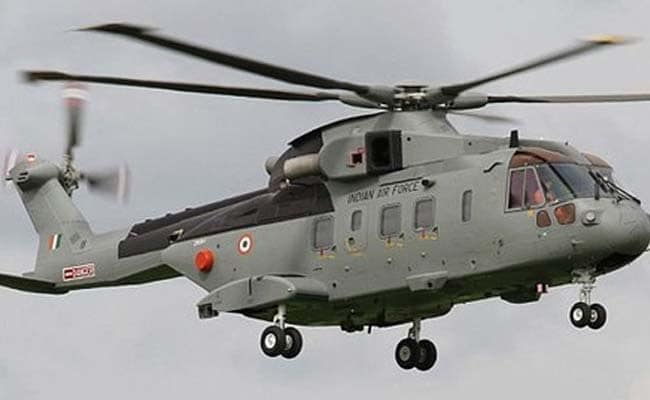
After new policy comes in, we will not buy AugustaWestland helicopters, a Defence Ministry source said.
- No blanket ban under the proposed defence policy
- Blanket ban on one company leads to monopoly for another, say sources
- New policy likely to be announced next week
Did our AI summary help?
Let us know.
New Delhi:
As the Central Bureau of Investigation looks into how kickbacks were routed when India purchased three Embraer jets from Brazil at a cost of $208 million, the Ministry of Defence is all set to announce a policy for "black listing" firms that indulge in corrupt practices. And with it, the once banned Italian defence manufacturing giant Finmeccanica -- (now called Leonardo-Finmeccanica) may be able to do business with India again.
The key elements of the new policy accessed by NDTV shows unlike the previous policy of a blanket ban on a Defence conglomerate followed by the previous UPA government, ban under the new policy will be product specific and company specific.
Company representatives suspected to be involved in the wrongdoing and bribery, however, will be banned for a life time from India.
"After the new policy comes in, we will not buy helicopters or have any business relationship with AugustaWestland - a subsidiary of the Finmeccanica that is suspected to paid bribes when India bought AW-101 helicopters. But India will be free to negotiate with other companies within the conglomerate for other platforms," a top Defence Ministry source told NDTV.
Explaining the rationale, he said defence manufacturing companies are often interlinked through cross holdings. So banning a conglomerate can lead to a situation where India no longer can source critical defence platforms or spares. "It only hurts India's interest and preparedness," he said.
The Navy, for instance, sources critical equipment like main guns for warships, heavy torpedoes from companies owned by Finmeccanica. It hasn't been able to procure these since Finmeccanica as a conglomerate was banned.
"Banning Defence conglomerates creates a single vendor situation and monopolies and that is not in our interest," the official said.
In a major shift from the previous policy, the new policy will allow defence manufacturers to employ middle-men. But companies will not only have to declare who their middlemen is, the money paid to them and payments cannot be linked to the outcome of the contract.
"Violation of these conditions will lead to very heavy financial penalties and criminal prosecution," the official said.
The new black listing policy is likely to be announced by the government next week.
The key elements of the new policy accessed by NDTV shows unlike the previous policy of a blanket ban on a Defence conglomerate followed by the previous UPA government, ban under the new policy will be product specific and company specific.
Company representatives suspected to be involved in the wrongdoing and bribery, however, will be banned for a life time from India.
"After the new policy comes in, we will not buy helicopters or have any business relationship with AugustaWestland - a subsidiary of the Finmeccanica that is suspected to paid bribes when India bought AW-101 helicopters. But India will be free to negotiate with other companies within the conglomerate for other platforms," a top Defence Ministry source told NDTV.
Explaining the rationale, he said defence manufacturing companies are often interlinked through cross holdings. So banning a conglomerate can lead to a situation where India no longer can source critical defence platforms or spares. "It only hurts India's interest and preparedness," he said.
The Navy, for instance, sources critical equipment like main guns for warships, heavy torpedoes from companies owned by Finmeccanica. It hasn't been able to procure these since Finmeccanica as a conglomerate was banned.
"Banning Defence conglomerates creates a single vendor situation and monopolies and that is not in our interest," the official said.
In a major shift from the previous policy, the new policy will allow defence manufacturers to employ middle-men. But companies will not only have to declare who their middlemen is, the money paid to them and payments cannot be linked to the outcome of the contract.
"Violation of these conditions will lead to very heavy financial penalties and criminal prosecution," the official said.
The new black listing policy is likely to be announced by the government next week.
Track Latest News Live on NDTV.com and get news updates from India and around the world

